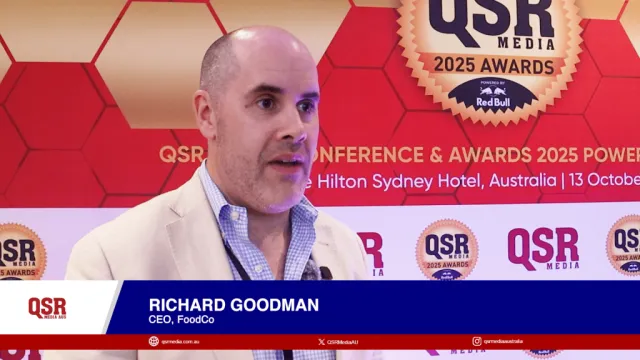
Federal Court delivers Pizza Hut good news
By Shaun Temby and Christopher Marsh
Last week, the Federal Court of Australia published its judgment in the much-publicised class action proceedings brought against Yum! Restaurants Australia Pty Limited (Yum!) by a number of its franchisees trading under the Pizza Hut brand. The case raised and answered some interesting questions about the various duties owed by franchisors in managing franchise systems, including examining the duty of good faith; implied contractual duties and a general duty of care. The good news for franchisors is that the Court unequivocally ruled that a well drafted franchise agreement that is intended by the parties to be a complete statement of the parties’ obligations, can be used to rebuff attempts to extend the franchisor’s liability through claims based in negligence, breach of implied contractual terms and unconscionability.
BACKGROUND
The proceedings concerned Yum!’s decision in mid-2014 to implement a new reduced price strategy, known as the Value Strategy for the Pizza Hut system (Strategy). A key component of the Strategy was to decrease the ranges of pizzas from four to two and reduce the prices in the remaining ranges to two significantly lower price points. For a variety of reasons, including competitive responses in the market, the Strategy did not initially lead to increased profits across the Pizza Hut system.
The key allegations made by the Franchisees were that the decision to implement the Strategy, and the method of implementation, amounted to:
- a breach of what was said to be an implied term under its franchise agreements to set profitable prices – being prices that would enable a Yum! franchisee to make, maintain or increase their profits
- a breach of Yum!’s duty of good faith, which extended to obligations to:
– cooperate with the franchisees to achieve the objects of the franchise agreements
– comply with standards of conduct that are reasonable having regard to the interests of the parties to the franchise agreements - negligence
- unconscionable conduct under the Australian Consumer Law (ACL).
The Franchisees’ claims failed on all grounds.
TESTING, MODELLING AND FRANCHISEE CONSULTATION
The Strategy was based on a similar strategy deployed by Pizza Hut in New Zealand from 2012. Yum! decided to test the Strategy in the Australia Capital Territory (ACT) as it was a self-contained market with 8 stores all owned and operated by a single franchisee, as a precursor to a planned national roll-out (the ACT Test). After the ACT Test, Yum! prepared financial information for presentation to Pizza Hut Adco Pty Ltd (AdCo), a body that, in conjunction with Yum, was responsible for marketing and promotional activities and promoting the Pizza Hut business, brands and products in Australia. As a ‘usual’ Pizza Hut franchisee does not own 8 stores, Yum! chose to normalise the data to make the financial information relevant to most of its franchisees. Once normalised, the ACT Test results predicted a 48% sales uplift for most Pizza Hut franchisees.
Prior to the ACT Test results being presented to AdCo in April, its franchisee directors resigned, which meant that it was no longer functional and able to consider the ACT Test results or approve the Strategy. In order to ensure that franchisees were properly consulted, in mid-May, Yum! called general franchisee meetings in each State. Following feedback from these franchisee meetings, Yum! then developed a financial model that analysed the profitability (at a break-even level) for each Pizza Hut outlet in Australia if the Strategy was rolled out nationally (Yum! Model). Based on the ACT Test results and the Yum! Model, in early June, Yum! decided to proceed with the Strategy. Further meetings were then held with the Franchisees to discuss the Yum! Model and to assist them in understanding what they would need to do in their particular store to maximize the likelihood of the Strategy being successful.
The Franchisees contended that, when analysing and presenting the data from the ACT Test to the Franchisees, Yum! manipulated the data, which presented a false picture of the profitability of the ACT Test. The Franchisees alleged that, to the extent that there were any positive results generated by the ACT Test, they were not replicable because of the amount of money that was spent by Yum! on advertising to generate those results. The Franchisees also argued that the Yum! Model was flawed in a number of respects and that Yum!’s consultation with the Franchisees about the introduction of the Strategy was not genuine and inadequate. Central to the Franchisees’ case was the allegation that the Strategy was imposed on Yum! by its US parent for the benefit of the Pizza Hut system in other markets.
DOMINOS’ MARKET RESPONSE
Yum! intended that it would be the first player in the market to offer a value proposition of full-sized pizzas for $4.95 all day every day. However, Dominos pre-empted the Strategy by implementing its own price change and launching an all-day every day $4.95 price point. As a result, Yum! lost its “first mover” advantage to Dominos and was forced to follow suit one week later. The loss of “first mover” advantage significantly impacted the success of the Strategy and contributed to its poor results.
NO IMPLIED OBLIGATION OF PROFITABILITY
The Franchisees argued that the sole or primary object of their Franchise agreements was the opportunity for them to generate a profit. According to the Franchisees, this was especially so given their agreement to use their best endeavours to grow the business and increase the revenues over the 20 year term of the contract, which they argued necessitated a sufficient return to cover costs, including operating costs, depreciation and cost of capital. As such, the Franchisees argued that the franchise agreements contained an implied term that Yum! would only set prices that were profitable for Franchisees against a number of different measures.
The Court disagreed, noting that the object of the franchise agreements was to enable the Franchisees to reasonably have the opportunity to run a profitable operation. In addition, given there were express provisions of the franchise agreements to the effect that Yum! could unilaterally determine pricing strategies and did not guarantee that advertising, promotion, research or tests would be profitable, the Court said an obligation to ensure profits for each Franchisee with respect to a given promotion, was not only inconsistent with that clause, but also commercially unrealistic. Yum!’s modelling showed that, although the profit margins on the newly-priced pizzas were lower, Franchisees were still able to make a significant profit on side dishes (and other products) and, if the Strategy was effective, the Franchisees would see an increase in the overall patronage and orders placed, resulting in greater profits.
NO BREACH OF GOOD FAITH
The Franchisees also argued that Yum! was subject to, and breached, implied obligations to co-operate to achieve the goals of the franchise agreements and to comply with standards of conduct that are reasonable having regard to the interests to the parties (which were effectively said to be extensions of the obligation of good faith). The Franchisees argued that these implied obligations were breached due to a number of matters, including:
- An allegation that Yum!’s normalisation of the ACT Test results was actually a manipulation of the data designed to present a false picture of profitability of the ACT Test to Franchisees due to Yum! wanting to implement the Strategy for the purpose of assisting the US Pizza Hut system.
- The Yum! Model was flawed, as it did not properly address the additional labour and capital required to achieve the uplift in sales.
- Yum! never engaged in genuine consultations with the Franchisees on the implementation of the strategy, in particular for the setting of the maximum price for the pizzas.
The Court accepted Yum!’s submissions that:
- It was generally subject to implied obligations to cooperate to achieve the contractual objectives of the franchise agreements and to act honestly in doing so, which included compliance with honest standards of conduct and compliance with standards of conduct that are reasonable having regard to the interests of the parties.
- However, these obligations must be understood in the context of the parties commercial bargain recognising the nature and terms of the contract, the different interests of the parties and the lack of necessity for parties to subordinate their own interests to those of the counterparty.
The Court held that the Franchisees’ criticisms of Yum!, the ACT Test and the Yum! Model fell short of establishing that Yum’s conduct was unreasonable or lacked good faith or fidelity to the bargain. In reaching this view, the Court relied on the following matters:
- On the evidence available, Yum! had agonised over the maximum price point, basing the decision on the data obtained through the ACT Test, the New Zealand experience and modelled by way of the Yum! Model.
- Although Yum! made choices to include and reject data obtained during the ACT Test Test (through the normalisation process) and these choices may be open to criticism, the Franchisees had failed to establish that Yum! deliberately engineered the results to obtain a false picture of profitability or that Yum!’s decisions concerning the presentation of the ACT Test results were unreasonable.
- The Yum! Model was just that – a model – and, like all models, contained some degree of hypothesis and speculation and may not have been universally applicable.
- Yum! believed, rightly or wrongly but reasonably (given the competitive market), that once Dominos offered an everyday $4.95 pizza, Pizza Hut had no choice but to implement the Strategy that was ready to go.
- Although Yum! was not contractually obliged to consult with its Franchisees on the implementation of the Strategy, there was significant evidence which supported the fact that the Franchisees were informed of, and involved in, consultations about the implementation and effect of the Strategy.
- Yum!’s CEO, as decision-maker, took advice from his executives, balanced all the relevant factors and made what he considered to be the best decision from the point of view of Yum! and the future profitability of the Franchisees.
- The decision needs to be analysed at the time it was made – the Court should not use hindsight or import facts known subsequently but not at the time that the decision was made in order to analyse Yum!’s conduct.
Accordingly, the Court noted that Yum! had shown great care in developing the Strategy and that it was not a strategy that was developed capriciously or arbitrarily. Although Yum! had an obligation to act honestly and with fidelity to the bargain, this did not mean that Yum! was under a strict liability to make decisions that only resulted in more profits for the Franchisees, nor did it mean that a decision made in good faith and on reasonable grounds (like this one) that proved to be unsuccessful in realising profits rendered Yum! liable for any of the Franchisees’ losses.
NO NEGLIGENCE
The Franchisees argued that Yum! owed a duty of care to each Franchisee for any conduct or decision by Yum! in providing services as franchisor and in the exercise of its powers under the franchise agreements. The Franchisees alleged that the duty arose from their vulnerability and their reliance on Yum! to deliver services with due skill and care. This was said to amount to a general duty of common application to the Franchisees arising out of Yum!’s role as franchisor of the franchise system. The Franchisees alleged that Yum! failed to meet this duty of care and was negligent in the preparation of the Yum! Model, the design and implementation of the Strategy and in failing to anticipate and plan for the likely Dominos response to the Strategy.
Yum! denied the existence of a general duty of care in circumstances where the franchise agreement is intended to be a complete statement of the parties’ obligations. It said that it did not assume any responsibility for developing the Strategy or the Yum! Model on behalf of the Franchisees or for the purpose of advising them and that, therefore, no further obligations to the Franchisees arose. The Strategy was Yum!’s idea and could have been implemented by Yum! irrespective of the Franchisees’ support or consent, as these actions were within Yum!’s contractual rights and subject only to the expectation that Yum! would act reasonably in the parties’ joint interests with a view to achieving commercial success.
The Court was satisfied that, based on Yum!’s assessment, the Strategy was an appropriate commercial course for it to take and this conduct was therefore reasonable. The Court found Yum! was not under a duty of care to the Franchisees for services provided by Yum! under the franchise agreements (such as the preparation of plans, policies, models and forecasts), nor was it under a duty to avoid causing economic loss for those services, to ensure the profitability of each franchise or to ensure that profits were maintained or increased, as alleged by the Franchisees. Even assuming that there was such a duty (which there was not), then the Franchisees had failed to prove that this duty had not been fulfilled for the reasons outlined above.
NO UNCONSCIONABLE CONDUCT
Finally, the Franchisees argued that, in breach of section 21 of the ACL, Yum!’s conduct in pursuing and implementing the strategy was unconscionable. This claim failed for the two reasons: first, the Court had found that there was no basis for the Franchisees’ key allegation that Yum! was directed to implement the Strategy for the benefit of the US Pizza Hut system and, as such, the arguments of bad faith were not made out; and, second, due to the Court’s conclusion that the ACT Test, Yum! Model and the Strategy were all reasonable.
WHAT DOES THIS MEAN FOR FRANCHISORS?
Franchisors will be pleased to discover that, on the facts of this case, the Court found that there was no general obligation on the franchisor to ensure that all of its franchisees make a profit following the implementation of a new product and pricing strategy. Importantly, a properly drafted franchise agreement can set the outer limits on the franchisor’s liability in its maintenance of the franchise system. A key consideration of the Court was that the Yum! franchise agreement expressly provided that Yum! had the ability to set prices, devise advertising and promotions and, critically, would bear no liability to the franchisees if that advertising or promotion was unsuccessful.
Despite this finding, when implementing a new pricing strategy or model, in order to reduce the risk of a successful claim by its franchisees, franchisors should:
- ensure that they comply with their obligations and meet any standards agreed to as part of the franchise agreement
- devise and carry out appropriate tests and modelling to ascertain the likely impact of the new strategy on the Franchisees
- test the new model at a number of locations, which, if possible, are likely to be representative of the network as a whole
- ensure the likely impact on Franchisee’s is thoroughly addressed during the decision-making process, notwithstanding the fact that the franchisor may, under the franchise agreement, be able to unilaterally determine pricing strategies
- keep franchisees in the loop as to the progress and likely effect of the model, consulting with them at every available opportunity.
Shaun Temby | Partner
Tel +61 2 9291 6287
E [email protected]
Christopher Marsh | Senior Associate
Tel +61 2 9291 6196
E [email protected]
























